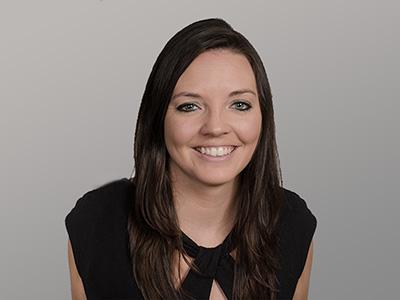Lauren Summers is excited by the possibilities that technology, data and personalized medicine can create for public health generally, and for cancer research in particular.
Summers (Master’s in Health Informatics and Health Information Management ’17) is a senior clinical research coordinator in the Personalized Medicine Research Program at the Swedish Cancer Institute in Seattle. She had already been working full-time on cancer research at the Institute when she began the MHIHIM program in 2015. While completing her degree, Summers was promoted to her current role.
Summers uses health informatics tools and processes to more efficiently identify cancer patients for clinical trials. “In our cancer clinical trials, we’re using a novel, genomics-driven approach,” she said.
The Institute makes use of a gene sequencing approach to identify genetic variations and match the patient to an appropriate treatment or clinical trial. “In this way,” said Summers, “we are able to personalize cancer treatments for specific abnormalities, instead of by where the cancer is located in the body.”
Research is familiar territory for Summers who, following her graduation from the UW with a BS in Microbiology (’11), worked as a research assistant on colon cancer screening and detection at the Veteran’s Health Administration.
“In my current role, I am bridging the gap between clinical staff working in clinical trials and the data and technology that help to inform the trials,” she said. “I’m responsible for the logistics of running clinical trials, helping identify patients who might qualify as participants, and getting them into the trials. I also get called upon to work on improving clinical research technology and processes. For instance, we’re implementing a new cloud-based clinical trials matching platform across the [Providence St. Joseph Health] enterprise. It’s a technology that involves mining data from the Electronic Health Records, from cancer registry systems, and the personalized medicine research program records.”
Summers enjoys helping to streamline processes so that clinicians and staff can efficiently make data-driven decisions and enroll and treat cancer patients on clinical trials. She finds having an advanced degree has complimented her work, where she’s “at the center of people, data and technology every day.”
She also greatly values the diversity she found among her cohort doing the MHIHIM degree. “We had people with strong clinical background who were learning informatics, and people with strong technology/informatics backgrounds who were learning more about healthcare.” This mix, she said, “brought rich perspectives to the discussion.” She said that studying with others whose background “ranged from nursing and pharmacy to user interface design and IT was a valuable part of participating in this program.”
(By Laura Cooley) v

